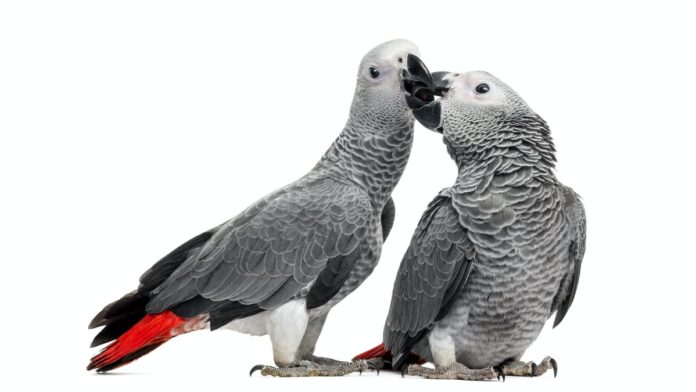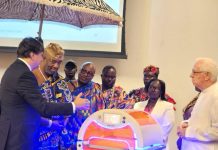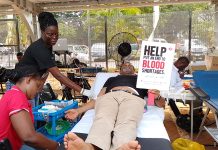World Animal Protection has revealed that endangered African grey parrots and their body parts are being sold at ‘fetish’ voodoo markets in Togo, West Africa.
They are sold to improve memory, or to protect against witchcraft, ignoring the potential threat for zoonotic disease spread from animals to humans. Full findings are provided in a new scientific paper published this week.
Shocking images show dead African grey parrots heads and feathers being sold for belief-based use, primarily voodoo, at West Africa’s largest traditional medicine or ‘fetish’ market. Known for their intelligence, the heads of these endangered birds are being sold to consumers with the belief they will improve memory or bring good luck. Their feathers are also being sold under the premise they will either help attract clients, bring love or help with divorce, and in some cases, their whole bodies are sold for protection against witchcraft.
It is estimated that up to 900 endangered African grey parrots have been traded at this market alone during the past 10 years, just one such market that are a common and widespread occurrence across West Africa. Voodoo is widely practiced in the region, and whilst much of the practices are harmless, there is a thriving domestic consumer demand for animal derivatives attached, which can have devastating impacts on wildlife.
This type of wildlife exploitation can further threaten the conservation of this endangered species, which has already seen wild population declines of up to 90% in some African countries. It can also cause immense suffering to the parrots involved during capture, transport, sale, and slaughter. Some of the cruel techniques used to capture African grey parrots for the exotic pet trade, which is likely to crossover with belief based use, have been documented through video footage previously released by World Animal Protection.
Experts are warning, that even though there are reasons to be optimistic with COVID-19 vaccines being rolled out, it’s important to consider that markets selling wildlife such as these around the world, pose risks of future disease outbreaks. Currently, avian influenza or bird flu is sweeping across India, which has caused severe economic ramifications with thousands of poultry birds being culled, and the situation is being closely monitored for its impact on human health which is a real concern, according to the World Health Organization (WHO)[1].
Edith Kabesiime, Wildlife Campaign Manager, World Animal Protection Africa, said:
“The dead parrots at this market would have experienced unthinkable cruelty, they are suffering and placing our health at risk. These highly intelligent, sociable birds that fly many miles each day and can sometimes live so long that they outlive their owners, are cruelly trapped, brutally handled, and slaughtered for their derivatives for unproven traditional medicines.
“What’s worse, is that untreated bird carcasses such as these, pose a serious health risk, as birds can carry numerous diseases. We must remember the lessons of the past and consider that COVID-19, SARS, Ebola, bird flu, swine flu, and many other zoonotic diseases all originated from animal exploitation, so this is a risky business.”
Last year, over a million people joined us and signed our petition calling on the G20 to end the global wildlife trade, forever. Now, World Animal Protection is continuing to put pressure on governments of all nations to make a collective commitment to end the inter-country trade in wild animals and wild animal products, and to ask for global institutions and bodies to put in place mechanisms to develop, facilitate and implement this ban.



















































